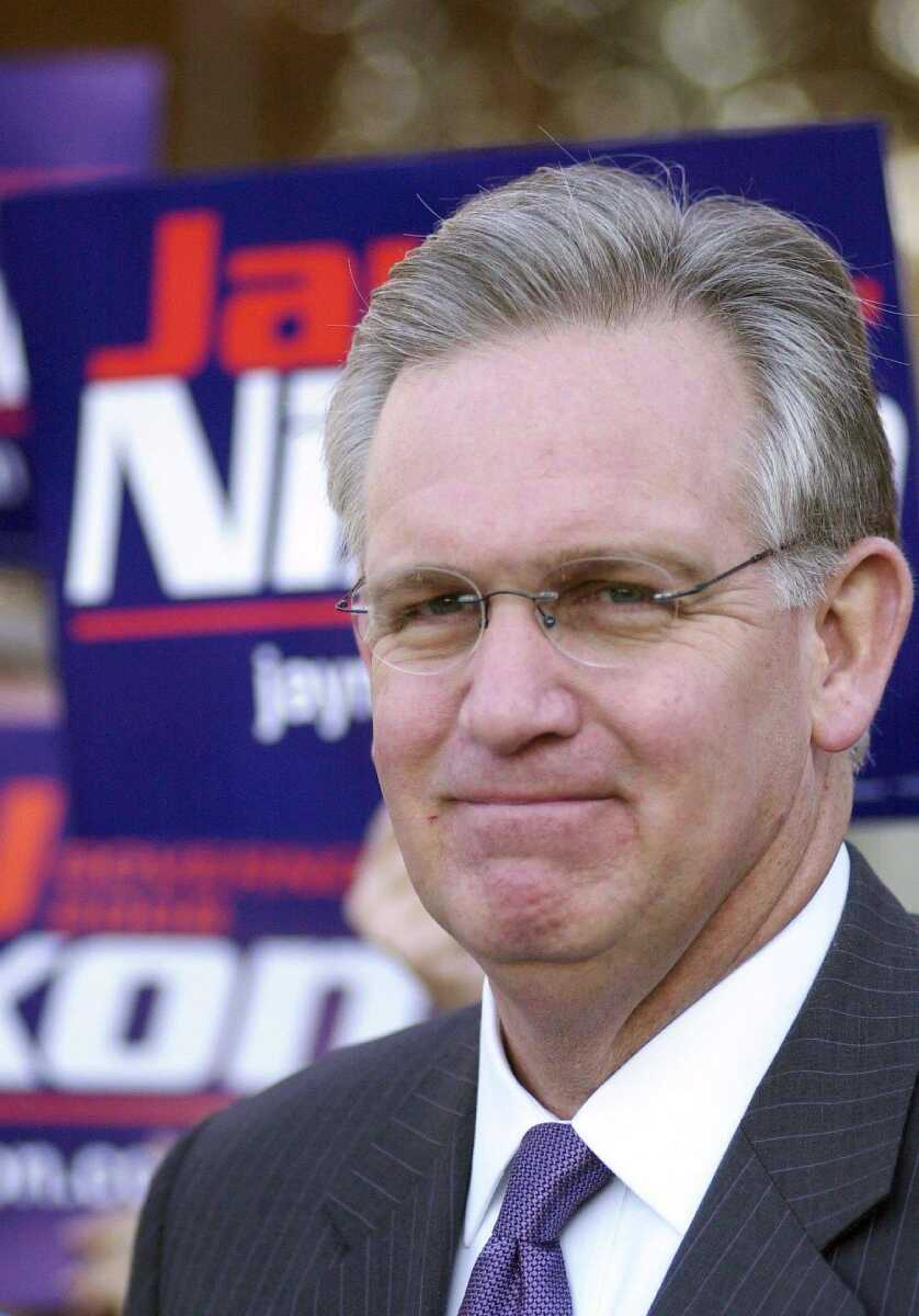Nixon cuts jobs, proposes more health care
JEFFERSON CITY, Mo. -- Gov. Jay Nixon proposed Tuesday to expand health coverage to about 62,000 Missourians and college scholarships to thousands more by relying on an expected surge money from a federal economic stimulus plan. Nixon's first State of the State address also was tempered by financial realities...
JEFFERSON CITY, Mo. -- Gov. Jay Nixon proposed Tuesday to expand health coverage to about 62,000 Missourians and college scholarships to thousands more by relying on an expected surge money from a federal economic stimulus plan.
Nixon's first State of the State address also was tempered by financial realities.
He proposed the elimination of 1,329 state positions in the next several months, which his staff said would be the largest reduction since 1980. He also proposed to eliminate or reduce about 50 state programs.
Elected in a landslide last November, Nixon took office Jan. 12 facing a $261 million budget shortfall that is necessitating immediate spending cuts to keep the budget in balance.
Nixon is counting on passage of federal stimulus money for states to avoid deeper cuts in his proposed 2010 budget and to implement at least a scaled-back version of his key campaign pledges to expand health care and college scholarships.
"Times are tough. We all know that," Nixon said in prepared remarks for a joint session of the House and Senate.
"The national economic meltdown is creating serious challenges for Missouri families," the Democratic governor said. "Jobs are being lost. Homes are being foreclosed. Retirements are being delayed. And everyone is concerned about what the future will bring."
Nixon acknowledged many Missourians face dire circumstances -- 219,000 are unemployed, 42,000 had their homes foreclosed last year and 729,000 lack health insurance.
In that context, he said, government should focus on five basic priorities -- job creation, fiscal restraint for the state, education, health care and a more accountable government. He urged lawmakers to pass "an emergency jobs plan" by their spring break in mid- March.
As a candidate, Nixon pledged to expand children's health care and reverse the 2005 Medicaid cuts enacted by former Republican Gov. Matt Blunt and the Republican-led Legislature. Those cuts eliminated coverage for around 100,000 Missourians and reduced benefits for hundreds of thousands of other low-income adults.
On Tuesday night, Nixon didn't go that far.
He proposed to add about 27,000 children to a government health care program by removing or altering the premiums paid by families and increasing the state's enrollment efforts. He also proposed to restore about 35,000 adults to Medicaid by expanding eligibility from the current income cutoff of $292 a month for a family of three to about $733 a month, or 50 percent of the federal poverty threshold.
"While this is the logical first step towards expanding health coverage, it won't be the last step," Nixon said. "We must continue to work together to further expand coverage and further drive down costs for Missouri families."
The Republican-led Legislature has been reluctant to reverse many of the Medicaid cuts enacted in 2005 as a budget-balancing tool.
Lt. Gov. Peter Kinder, delivering the Republican response to Nixon's speech, expressed concern about Nixon's proposal to use money from the federal economic stimulus plan to expand health care coverage and create new programs.
"What if these dollars don't arrive? What if we don't get nearly as much as expected? Can we really spend our way back to prosperity?" Kinder said in prepared remarks. "Then our entire budget would have been written on a bad check. A budget based on a one time bailout is NO long-term plan."
As a candidate, Nixon also pledged to expand an existing program that provides free community college tuition to students from certain high schools. He sought to make all high school students eligible for the program and to expand the free tuition for community college graduates who go on to a four-year university, provided they meet certain grade and community service requirements. He estimated it would cost $61 million
Nixon's proposed budget includes $51 million to start what he calls the Missouri Promise scholarship program. He projects that the funds would provide two years of free community college tuition to an additional 19,300 students and one year of additional free tuition for 8,200 students at public four-year universities.
Connect with the Southeast Missourian Newsroom:
For corrections to this story or other insights for the editor, click here. To submit a letter to the editor, click here. To learn about the Southeast Missourian’s AI Policy, click here.









